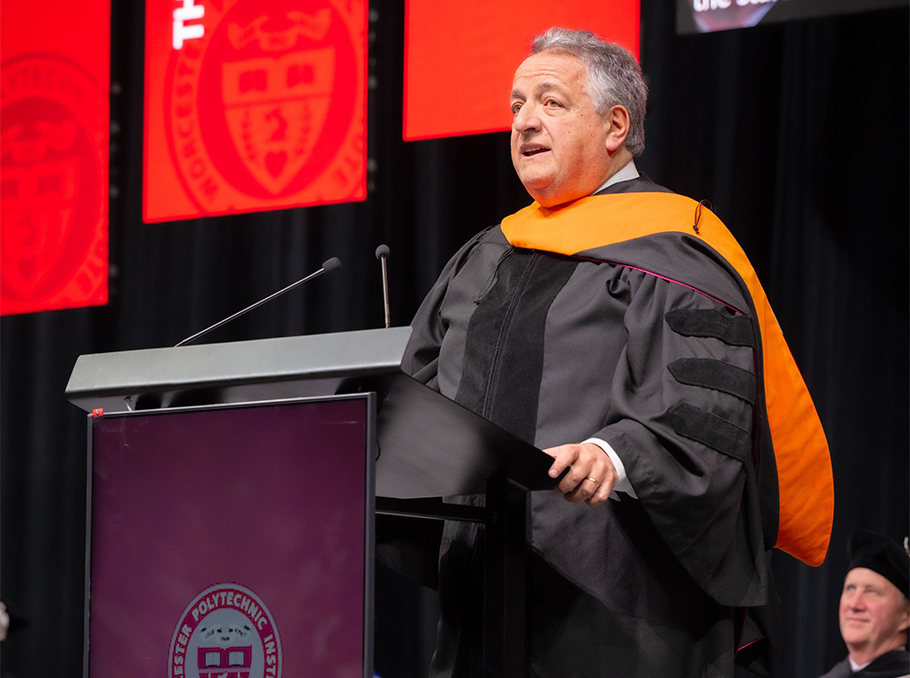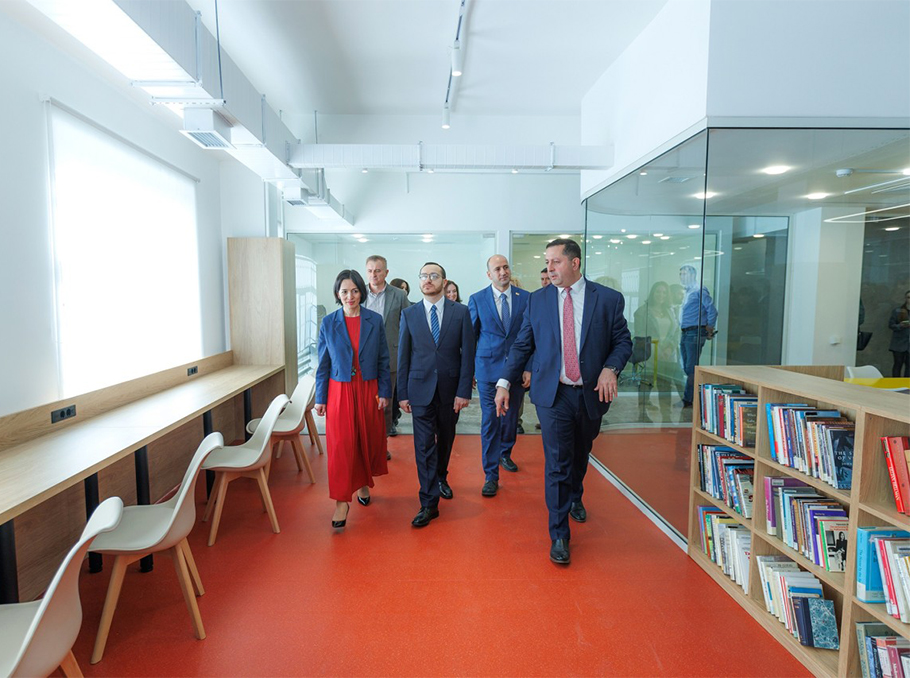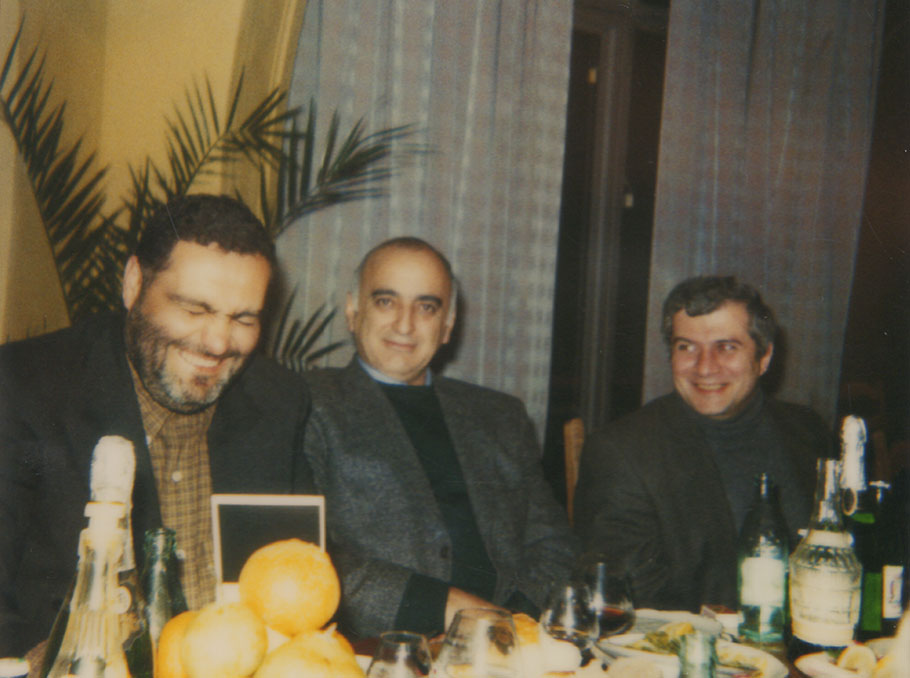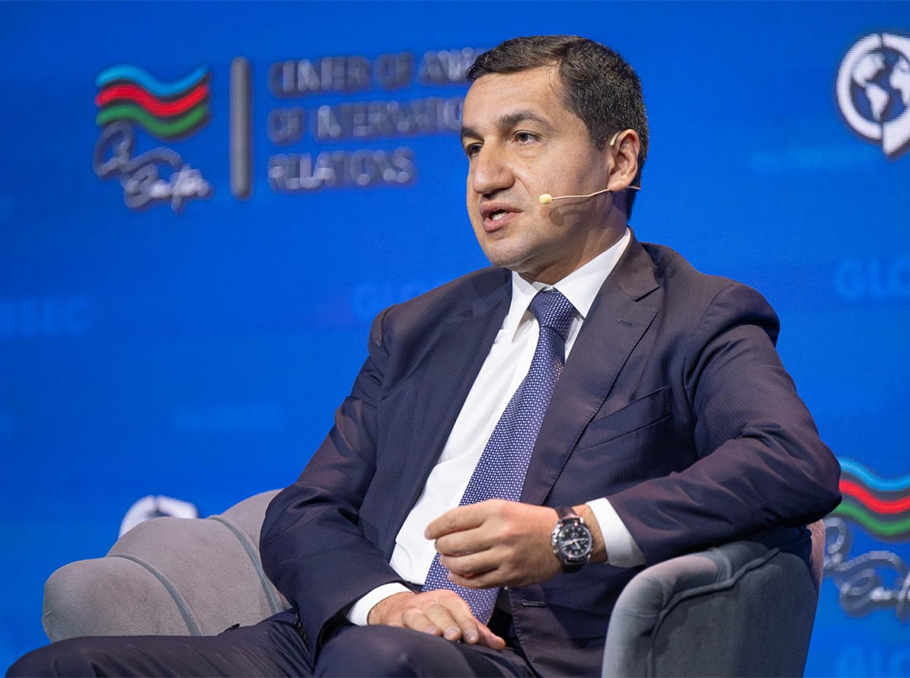On May 16, 2025, businessman, innovator and philanthropist Noubar Afeyan delivered a speech at Worcester Polytechnic Institute's commencement ceremony. We present some extracts of that speech.
Goddard's story
On October 5th, 1882 Robert Goddard was born just down the road from where we are today.
More important than his birthday, Goddard celebrated what he called Anniversary Day. The day when, as a teenager, he climbed into a cherry tree, looked to the sky, and imagined a device that could ascend into the stars. It was the moment of imagination that inspired his entire life's work.
He enrolled here at WPI to pursue his dream of rocket-powered spaceflight. Think about it. Rocket-powered spaceflight in the 1910s. He tinkered and tested and fine-tuned, and over the course of 15 years and 35 rocket launches, he developed the technology that would take humans to the moon.
The lesson in Goddard's story is a lesson I often told my four children on our many drives to and from school, and still often repeat, even though they are now adults.
And the lesson is this - disappointment is overrated. It's not a good thing for kids to hear from their parents, but there it is.
Disappointment in life can come from trying things that are new and hard, or from competing and losing, or from an outcome being other than what you had hoped for. But no matter the source, dwelling in disappointment is a waste of your energy.
Channel that disappointment into learning, iterating, and trying again. Goddard's example shows that when you're trying big, bold things, they rarely work out at first, and that can be quite uncomfortable and even embarrassing.
Permission to be unreasonable
I grew up in an Armenian family in Beirut, Lebanon, in an apartment that looked out over a jumble of red roofs and the blue Mediterranean Sea. When I was 13, civil war broke out, and our view came to include rockets tearing across the horizon.
One day, the building right next door to where I grew up was flattened by a bomb. My family eventually moved to Montreal, Canada, where I enrolled in high school and began a crash course in an entirely new culture. I remember being especially shocked by my first experience with an unpleasant new phenomenon. They called it snow.
Being a stranger in a new land was profoundly uncomfortable. But over time, I've come to see that discomfort as an advantage. It has shaped nearly everything I've done in my life since.
If you don't know what's expected, you're not bound by what's expected. You have permission to be unreasonable. For much of my life, I've been criticized for being exactly that, completely unreasonable.
I used to worry that this would be a problem, and I needed to find a way to be more reasonable, more realistic, more relatable. But then I asked myself a simple question. Why should we expect reasonable people doing reasonable things to deliver extraordinary results? If you're trying to accomplish something that has never been done, or even establish an entirely new field, then reason and facts can only get you that far.
New era of polyintelligence
Interacting with AI can feel so different, so other from what we're used to. Part of why it feels so different is that it challenges an important assumption we've made for centuries. That the word intelligence refers only to humans. With AI, it's clear that we are now living together with a new machine form of intelligence.
Just as we make room in our lives for a non-human form of intelligence, I invite you to see that there's also a third form of intelligence that we've long overlooked, or at least poorly understood. And that's nature's intelligence.
Over billions of years, nature has encoded ambient external information into DNA. A code molecule. Essentially learning from its environment to adapt and refine life forms from the smallest virus or microbe to the biggest blue whale.
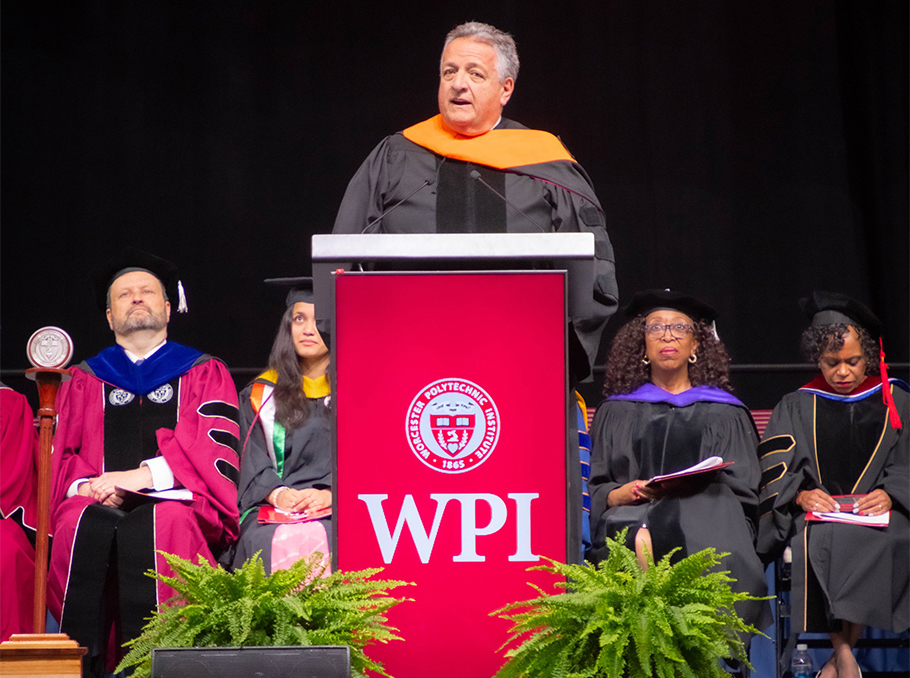 Noubar Afeyan
Noubar AfeyanPhoto: WPI
Think of a virus mutating to avoid immune detection and destruction, just like we witnessed five years ago. What is that if not intelligence? What about ecosystems of symbiotic life forms that efficiently thrive but when separated perish? Is that not an intelligence system? Humans have investigated nature for as long as anyone can remember. We call that biological sciences these days.
But in our conceit, we haven't always recognized its sophistication and the possibilities that might lie in recognizing nature as having its own intelligence. The advent of AI gives us an opportunity to revisit how we view natural systems and life. It creates an opportunity to finally decipher and apply nature's secrets by bringing together these three intelligences. Machine, human, and nature - into what I call polyintelligence. Polyintelligence will open the door to an entire new world of scientific discoveries that can help us take on the biggest challenges of our time.
For example, AI's sheer processing power might help us better understand how cancer cells replicate so we can outsmart them with new treatments. Or nature might provide the inspiration for new kinds of machine intelligence with animal social networks inspiring AI agents. Together and through dynamic interactions, machine and nature and human intelligences can do things no one of them can alone.
In other words, generating hypotheses through trained LLMs, designing experiments through designated agents, conducting them in a fully automated way, and then analyzing the data using machine learning techniques. As we get better at doing this, we will allow AI to participate fully and seamlessly in the scientific process, learning from all past experiments and proposing many new ones. But you don't need a supercomputer to get started.
For now, you just need to make room. Make room in your own research for AI to contribute. Because as powerful as it may turn out to be, polyintelligence will not sideline humans.
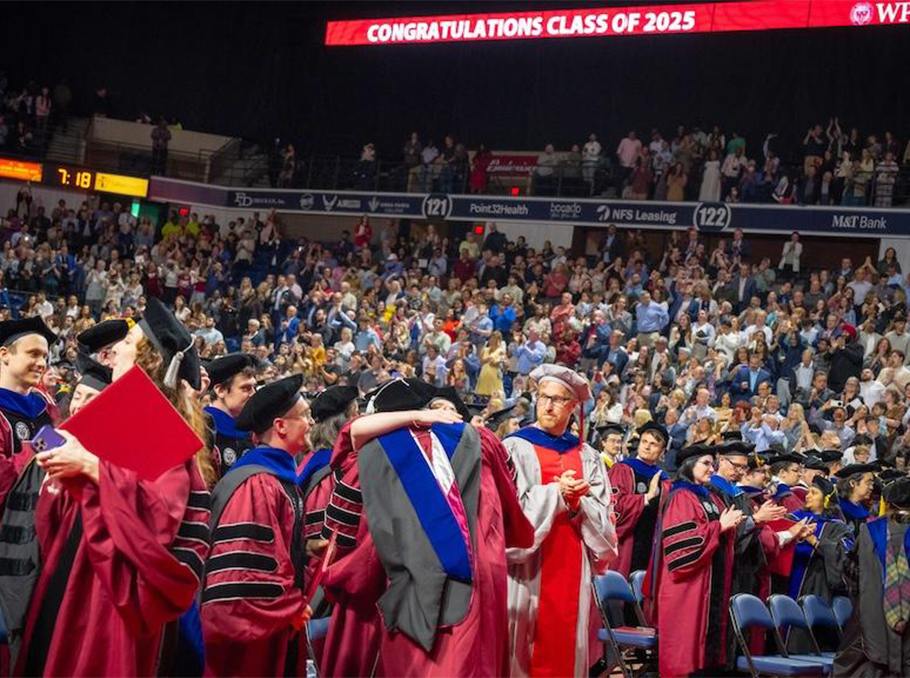
Photo: WPI
After all, human intelligence is one of the three legs of that stool. This new era will need each and every one of you. It will need data scientists, robotics engineers, biologists, physicists, civil engineers, and entrepreneurs.
Once you make room for AI, the next step is to make use. Look for the places you might be able to capitalize on connections between nature, human, and machine. Seek out the lessons we might learn from recognizing these other forms of intelligence.









